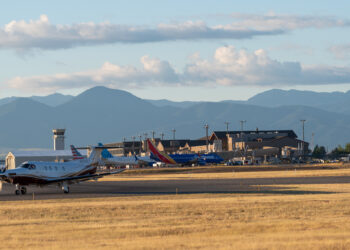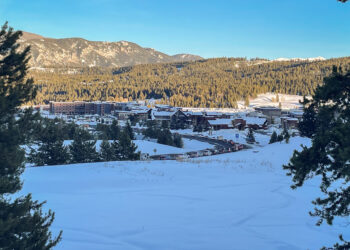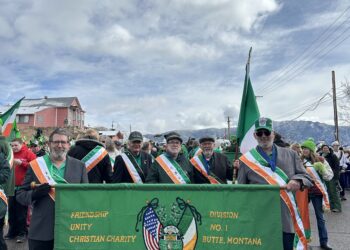By Kim Theilman-Ibes
Each spring, Luanne Freer’s commute to work takes on epic proportions as she navigates three continents, a vast cultural divide and a dramatic rise in elevation totaling 13,000’—over 8500’ gained by trekking through the roadless Khumbu region of Nepal. The circuitous route takes Dr. Freer from her comfortable home in Bozeman, Montana to an austere, no-frills nomadic life at the edge of a tent city most refer to as Mount Everest’s base camp. Several weeks after departing Bozeman, Dr. Freer settles into her home away from home, an emergency medical facility set upon an inhospitable rock and ice-filled landscape nesting around 17,600.’
Dr. Freer and her volunteer staff of doctors are among the first to arrive and the last to leave Everest base camp each year, working from a white tent adorned with a red cross the first week of April through the end of May.
Dr. Freer founded Everest Base Camp Clinic (EBC) under the auspices of the Himalayan Rescue Association (HRA, a non-profit NGO) in 2003 during Everest’s 50th anniversary climbing season. It’s the world’s highest altitude emergency clinic, and Freer’s work here has made her one of the world’s foremost experts in high altitude medicine. In a busy year, 500 people attempt to summit Mount Everest, and more than 10,000 people trek to base camp. EBC assists the well prepared and elite of the climbing community, the sometimes unprepared less-practiced outdoorsmen, and the local Sherpa and Nepali population who account for half of her 400-500 patients each year.
The Sherpa people, a tiny society of approximately 8,000, are as important to the country of Nepal they are integral to the climbing and trekking community. They provide lodging on the multi-day trek to base camp, porters and yaks to carry gear, guides up the mountain and the highly skilled “Icefall Doctors” that prepare the treacherous Khumbu Glacier for safe passage.
Many Sherpa and Nepali believe they are impervious to illness resulting from high altitude exposure. The heavy loads they carry up the mountain, combined with this belief, put them at a higher risk for HAPE (high altitude pulmonary edema) or other high altitude related sicknesses.
The clinic uses the funds provided by guiding organizations, climbers, and trekkers to finance free and low cost healthcare for the Sherpa and Nepali population. Any profit from clinic supports other HRA clinics.
Through a twist of fate, Dr. Freer first visited Nepal in 1999. She initially spent a week volunteering at a HRA clinic, where her medical group treated over 600 Nepalese in just five days. The following year, Dr. Freer returned for a three month medical stint, this time working at a clinic at 14,000’ in the Khumbu region of Nepal. During this visit Dr. Freer made the famous trek to Everest’s base camp, where she encountered a large population suffering from a variety of high altitude illnesses without a doctor in site. From this experience, the Everest Base Camp Medical Clinic was born.
“It was a last minute decision that’s changed my life,” says Dr. Freer. “I fell in love with the Sherpa people. [They] reorient me to what’s important… I had to find a way to keep coming back to make them a permanent part of my life.”
During her stay at George Washington University’s emergency residency program, a faculty advisor told her it wasn’t enough to be good at what you do. To get up every morning, she needed more than good. That meant marrying her profession with her passion—being outdoors, camping, climbing and canyoneering. With this advice, Dr. Freer headed west upon graduating, and landed a job with Yellowstone National Park’s medical clinics. At that time, the backbone of knowledge in wilderness medicine was small, but growing. Dr. Freer found dealing with patients in extreme situations both educational and exciting, and in Yellowstone it meant dealing with altitude.
As founder of the EBC clinic, the Medical Director for Yellowstone National Park, past-president and current board member of the Wilderness Medical Society, and a volunteer physician in Nepal for the Himalayan Rescue Association (HRA), Freer, a doctor since 1992, is uniquely qualified in the practice of extreme-emergency outdoor medicine. Before and during her tenure with the EBC clinic, she has been part of several studies on high-altitude health related issues.
Outdoor medicine is more than a profession—it’s her passion. In the Everest Base Camp medical clinic, Dr. Freer found more than reason enough to get up every morning.
More about Dr. Luanne Freer’s findings is on her website everester.org.












